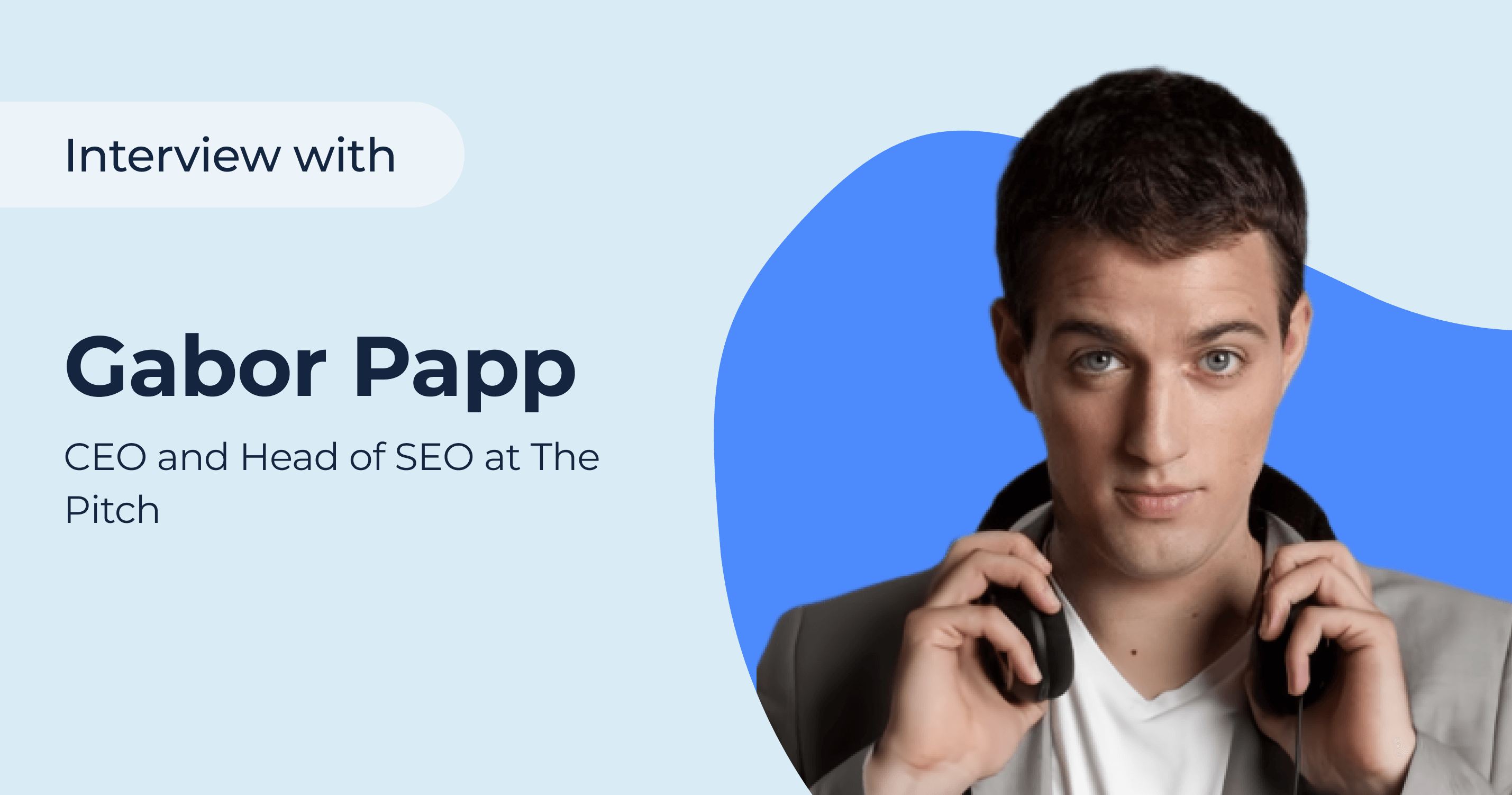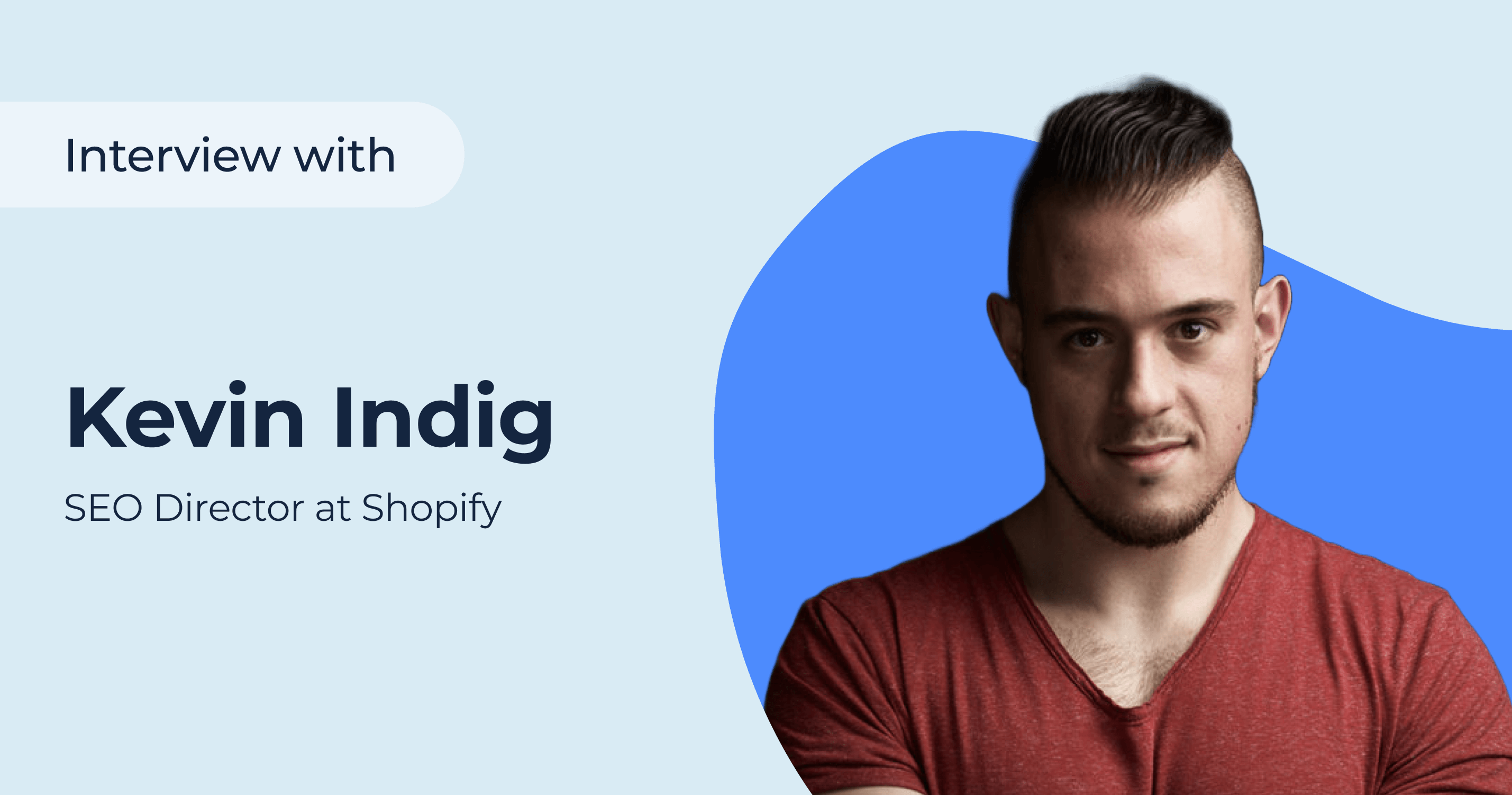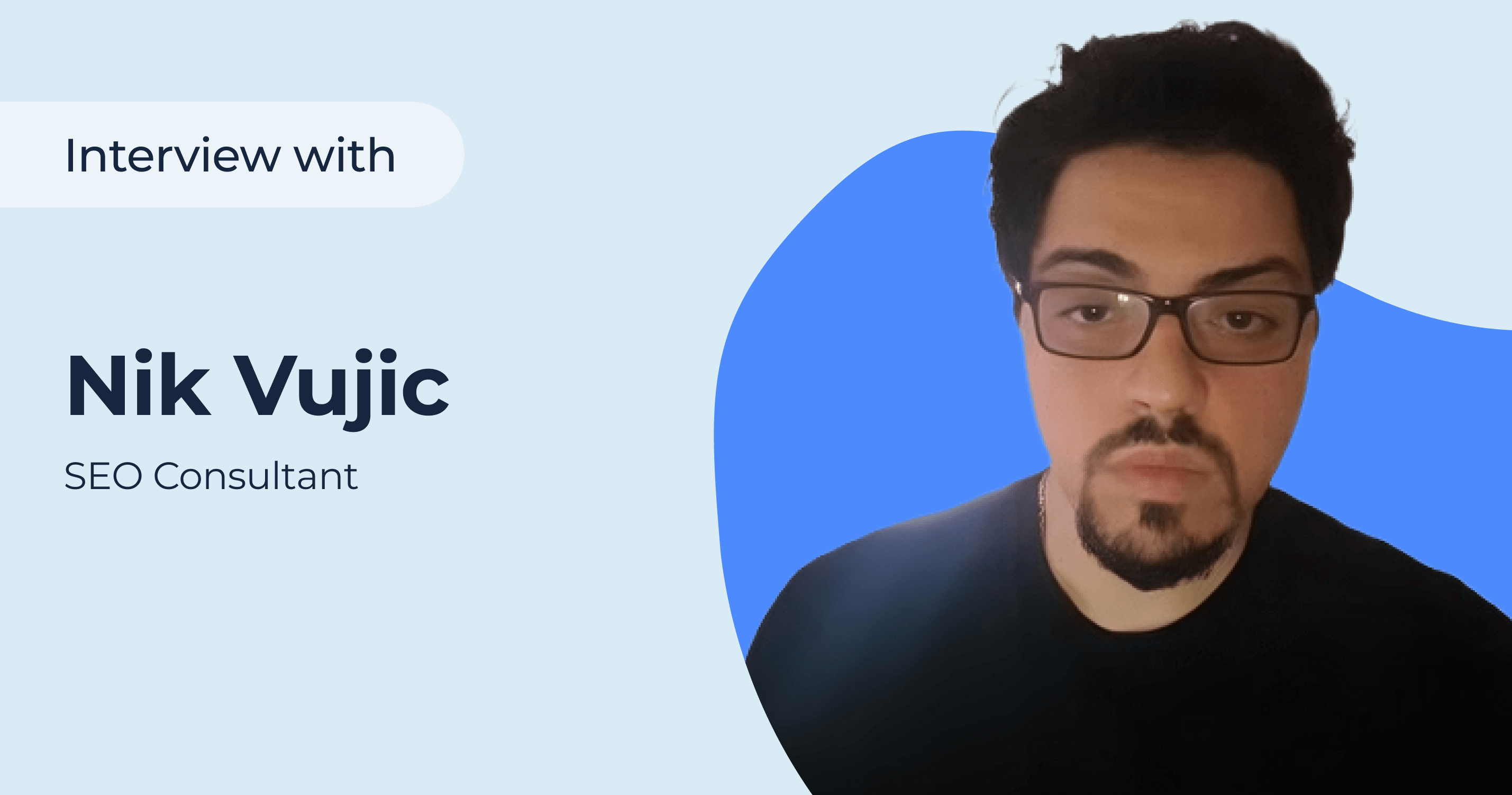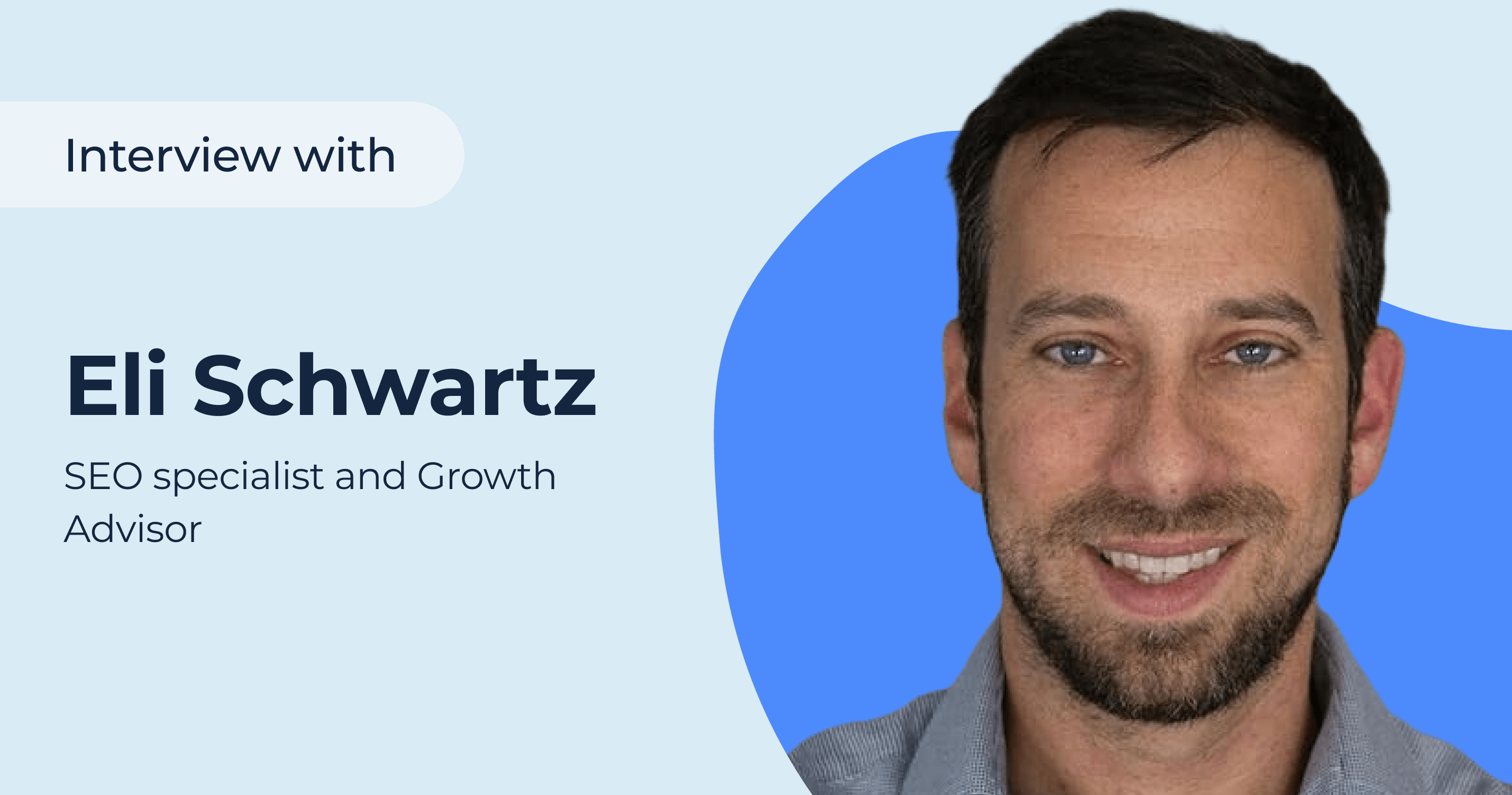Gabor Papp is an online marketing and SEO expert. His focus areas include SEO, Growth Hacking and business models. He works with large, international clients, tech companies and even a New York Times Bestseller Author. To know more about Gabor Papps’ projects, follow his Twitter page.
1. How many years of experience in digital marketing do you have?
I studied Photoshop and basic web design in high school back in 2004-2005 when I was studying in the US as an exchange student. My love and knowledge for digital started back then. After I moved back to Hungary I did smaller digital project, mostly using Photoshop. I eventually ended up doing marketing from 2009 onwards. I studied finance at the university but during the crisis, it was impossible to find a job in that sector. So I moved towards marketing, first starting with social media and later transitioning to SEO.
2. What type of digital marketing you have the strongest skills?
Even though I have a wide range of knowledge in many online marketing channels, my focus is on SEO for the past 6 years now. I did a little bit of everything before and still do, but only for my own projects and agency (like social, email, CRO, copywriting). For our clients, we only do SEO at the moment. But within that segment, we do everything (tech, content, online PR).
3. You grow many own projects. Why did you decide to use different brand names for each of them?
I am running my own SEO agency, called The Pitch which is the leading SEO agency in Hungary. And we also run a few projects on the side. I wrote a book on e-commerce SEO, run a digital marketing conference for Analytics, PPC and SEO in Budapest, Hungary. They seem like separate items but they are very well connected because they all serve the same purpose. Educate the market and help companies do better online marketing.
4. What projects you have launched recently you are proud of?
Writing a book has always been on my bucket list. I accomplished that 1.5 years ago. Writing and copywriting comes easy for me, so it was actually a pretty fast and seamless process. I got done with the entire book in just a few weeks, and the book itself is 300 pages long.
5. What do you do to further your own SEO knowledge and skills?
Testing and following smart people on Twitter.
Twitter is one of the best sources for being up-to-date with the latest SEO news and actually learning new things. When I come across something new I try to either save it for later or just test it out right away.
Gabor Papp, SEO expert
As I have a few testing and hobby sites it becomes much easier to do, as I don’t need to ask for permission from anyone. If something works on my own sites, I advise my clients to implement the same techniques.
6. Is there any marketing or SEO blog you like most of all and why?
I used to have some go-to resources 5 years ago (like Brian Dean’s blog, Noah Kagan’s OkDork, etc.), but now I don’t have any specific one. Now I read mostly what gets attention and recognition on Twitter. I follow a lot of professional SEOs in the space who are very good at picking the hot and good pieces up for me.
SparkToro is also a good resource to find good, new and fresh content in the space.
7. What are the TOP-3 errors you made at the beginning of your SEO specialist career?
Driving traffic is one thing. But converting that traffic is another one. You can be a good SEO and lots of traffic to a site and still make pretty much no money at the end.
Part of being a very good SEO is understanding the business aspects. I have a background in finance and business development, as I studied these at the university. When it finally clicked how to connect the business and marketing aspects, I finally became a much better SEO. But it took 3-4 years for everything to come together.
If we are talking about specific mistakes, there was one major event I can definitely recall. There was a client where there were thousands of pages with thin content. So we decided to get rid of those, this is called content pruning. We fired up Screaming Frog, connected all the APIs, including Google Search Console and Analytics. We pulled all the URLs and checked which pages got zero traffic in the last 365 days. Decided to delete those pages.
The problem? When Screaming Frog and the API call fails it will return no value for a cell. Not zero but just no value. But there is no error message. We didn’t know this and exported the “final table”. Sorted the URLs by descending order in terms of traffic. And deleted the one below a certain threshold (like 10 visits in the last 365 days). So what happened? A lot of URLs that actually had traffic returned no value in the sheet. So we ended up deleting lots of content that was actually bringing organic traffic. We lost about 1/3 of the organic traffic due to this. Even after putting everything back online it took months to recover.
8. What SEO tactics do you think are underrated?
If everything is important, then nothing is important. What I see many companies do wrong is not optimizing for search intent. Yes, they have content for a specific query. But the content format is just not right.
They have a blogpost for a query when everyone is ranking with a category page. Or they have short-form written content when the Google top 10 indicates that it should be long-form content with images.
This is something that was definitely looked over in our industry by many in the last few years.
9. What website performance items should always be tackled when it comes to Google’s recommendations?
Mobile-first design. As Google is switching to Mobile-First Indexing and the majority of internet usage comes from mobile devices this is a huge item on anyone’s list.
Mobile readiness (preferably with a responsive site) is more important than speed, I believe.
10. Do you believe that backlinks are Google’s past? Is link building important for increasing the website’s positions nowadays?
Links are still in the top3 most important factors and are not going anywhere. The importance of links shifts from time to time but it is absolutely necessary to have quality backlinks to rank well in the long run. In some underdeveloped countries and markets you can still rank with few trashy links in certain markets, that’s for sure. But as most markets mature, links become a huge factor to rank well.
11. In your opinion, does the technical health of the website affect the ranking positions in search engines?
Having a good technical foundation is step 0 for most projects. For a smaller site tech SEO is not that crucial, but it is recommended to get everything in place. As a site grows in size and complexity, tech health becomes increasingly important.
12. We all know about the latest update (January 2020) from Google. Some websites rose, some of them fell. What do you think about the new algorithm? What are the main new rankings factors SEO and Marketing specialists should pay attention to? How do you stay up-to-date on the near-constant search algorithm changes?
Algo updates come and go. Some are going to affect you positively, some negatively. The basic ranking factors haven’t changed much in the past 20 years. Good tech foundation, solid content and relevant links. If you have these, and actually are better in all three aspects than your competitors, you’ll be competitive in your space with them. I might be in a lucky position but haven’t had a major drop for any of my sites in the past 5 years. Only the Medic update was a major one for 1 client but we recovered in 6 months and the organic traffic is now 3x compared to what it used to be pre-Medic.
I try to stay up-to-date by reading Twitter, following what Glenn Gabe and some others post.
13. Are you going to surprise SEO and Digital Marketing world with something new (tool/app, course, product)?
I develop new training and products but for a small, local market: Hungary. I have over 20 specialized SEO courses for Hungarians. So in that sense, yes. But it’s pretty niche.
14. How do you make competitors analysis? Please provide a short 1-2-3 steps guide.
I always look at three things at first. How many keywords they are ranking for, how much estimated organic traffic they have and how many links they acquired so far.
This gives me a good ballpark figure on how advanced they are in terms of SEO. I care less about the tech details at first, which always comes at a later stage.
I do the content + link analysis for 5-10 competitors mostly using Ahrefs of SEMrush.
15. What key factors to measure when planning to launch a website in absolutely unknown to your niche?
I usually don’t go into niched I don’t really know. But I have to look at the estimated traffic / referring domain ratio. If this is very high, it means that you can have lots of organic traffic with relatively few backlinks. That would be a good indicator if a niche is worth pursuing in terms of organic traffic. The higher the ratio, the bigger the potential, especially if the referring domain number is relatively low.
As link building is one of the hardest things to do in SEO, that would be a key factor when deciding to move into a niche or not. If all major players have 500+ referring domains that would take years to catch up to. That’s a very long play. Doable, but long. I would skip those markets and niches first for sure.
16. If somebody asked you to help/make SEO for website, what themes would you declined? And why?
I only work in niches and markets I am comfortable with. And also only in markets where it is legal to operate. I have worked with over 100 clients. My favourite ones are B2C site where the company generates the content. I don’t really like user-generated content sites (UGC) that much. Worked with a few, but I feel like I have less control over what happens in those cases and content generation is out of my jurisdiction.
17. Google webmasters every year say that backlinks do not work. What do you prefer for your website according to them: good backlink profile or high-quality content?
Content first. And links second. It depends on the niche you are in.
If everybody else has tons of links, you need to have links as well. If the market is underdeveloped in terms of links, you can shift your focus more on content.
Gabor Papp, SEO expert
I usually tend to focus on balance. I analyze how many links or referring domains are necessary to rank. And plan a strategy to get there. If it’s 6 months, then it’s 6 months. If 3 years, then 3 years. I just need to know in advance roughly how long is it going to take to get there in terms of links. Because getting those is the hard part.
18. What is your checklist when doing website audit?
If I need to do everything, I start with a tech SEO audit. For this, I mostly use Screaming Frog. For content analysis, I use Google Search Console and Ahrefs. For link audits, I use the same tools but the other way around: Ahrefs first and GSC second.
There are some other handy tools like GTmetrix that I use once in a while.
19. In your opinion, does user’s behavior impact on website ranking in SERP?
Yes, it does. It didn’t matter that much 5-10 years ago but Google has so much data now, they can easily use it for ranking. Pogo-sticking is something I believe the measure for rankings. I don’t think they use Google Analytics data for ranking, but they have data from Chrome users they most probably use instead.
20. In your opinion, does the technical health of the website affect rankings in SERP?
Definitely. Especially if there’s some major problem with the site.
21. What is your approach to developing an SEO strategy?
I always look at the market first, so do some research. Once I understand how good the competitors are I can develop a strategy. It includes a content strategy and a link building strategy as well.
22. What services/companies/apps have inspired you the most this year?
Ahrefs and Data Studio are two tools that developed a lot. I use Google Sheets for most of my projects. The Suite hasn’t changed much, but the flexibility of it always amazes me.
23. What are the most critical SEO mistakes you have ever seen in other companies?
Usually comes down to some technical error. They de-index the site, disallow crawling, their server is down. The block Google-bot. I see all sorts of interesting things for small, medium and even large companies as well.
24. How do you evaluate web analytics to measure SEO performance?
I prefer data from Google Search Console over Google Analytics, as it is very easy to fake GA. But I don’t get my GSC data from the web version, but rather use the GSC API to get the data out directly, using Data Studio.
25. How do you see the future of SEO (in 5 years)?
There’s going to be some changes but don’t see tectonic moves at the moment. What has been bothering me is that Google is getting so dominant (almost a monopoly) that they control the narrative. So what happens in the next five years? Mostly what Google dictates. It’s sad news, but it’s the truth.
26. Which SEO or marketing tools can you recommend as a must-have for every SEO specialist?
Google Search Console, Ahrefs, Screaming Frog. And Google Sheets. You can exchange most of these tools with their competitors, like DeepCrawl, SEMrush and so one. You can’t go wrong with the above-mentioned ones.
27. What advice can you give for those who are just starting their career in digital marketing?
Start your own website or have a place where you can build, work experiment. That’s the number one thing which will help you get better. The practice is more important than theoretical knowledge.
28. How to make a website search engine friendly? Could you please name the main steps?
The Tech setup comes first. If you use a well-know framework like WordPress, you have accomplished a lot already. If you add a trusted SEO plugin like Yoast or RankMath, you are already in stage two, because you have a sitemap, meta tags setup etc.. If you need to develop something from scratch, make sure to have a crawlable and indexable site. Responsive design is also advised, so the site would work on mobile as well. In fact, a mobile-first design is probably more important than you think.
29. SEO is such a controversial thing. Every SEO specialist rate its success differently. What is your way to rate SEO success? What metrics do you look at?
Relevant organic traffic is a good top and middle of the funnel metric. Organic traffic driving sales and conversion (even if assisted) is a good bottom of the funnel metric. Any of these two should be going the right direction to call it a success. If both are doing fine, business should be rising.
30. In your opinion, good SEO specialist should be a good analyst? What extra knowledge should SEO specialists have to succeed?
Business and analytics knowledge is very useful for any SEO. But as the market matures more and more areas come into play, like automation, coding etc. If a person is a good analyst, that definitely helps to become a much better SEO.
31. What SEO analysis metrics you pay attention the most?
If I have to pick one thing it would be conversion. But it’s very hard to measure organic conversions.
32. Do you have any experience managing a marketing or SEO team? What were the biggest challenges?
Doing SEO by yourself is a different thing than doing it in an agency. You need to train people on how to do certain things and set up processes so the output is similar or just as good as yours would be. So knowledge sharing and setting up processes is definitely something that’s very challenging.
33. You are noticed at many digital conferences. How important live communication is for business? How does it work for you?
Conferences are nice ways to meet people and show what you know. They are not absolutely necessary to build your network and business, but if done wisely it can have a great impact on your business. I have been lucky that presenting comes easy for me, so I can attend many conferences and events in digital marketing and SEO. Even as a regular speaker.
34. Should a business have a corporate blog?
If it makes sense, yes! I see more and more cases where a blog is absolutely beneficial to a business. But I only advise running a blog, if the company actually maintain it. If you only publish something every 2 years, it’s probably not worth the effort.
35. How can start-ups and early-stage businesses use SEO effectively to drive traffic to their sites?
It’s long term play. In the beginning, it’s not going to be SEO that will drive your traffic. But in 6-9 months’ time (or even a year) you can start having success with it if you know what you are doing. Having a blog, writing guest articles on similar sites is something I would start within these cases.
36. What do you prefer the most: client SEO, own projects, consulting, something else?
I do a little bit of all. That way I don’t have to pick one and be exposed to it. But at the same time I can always find an area I would like to work on. As I am running an agency we do client work and consulting. But we also have a few of our own projects as well. So it’s a mix, but we are very happy with it.
37. What strategy do you prefer: launch and grow many small projects or work on a few solid projects?
Few projects, but with more focus.
38. Have you ever used black hat and grey hat SEO tactics? What do you think about them?
Black: no. Grey: yes. But 95% of our time goes into white hat SEO.
Grey hat SEO is something very hard to dissect. If I am writing a guest article to get a link to my site, that is considered to be grey hat according to Google’s guidelines. But is it really?
Gabor Papp,SEO expert
I don’t advocate black hat at all. But I believe some of the grey hat is actually not harmful, but useful.
39. Have you ever run Google Ads campaigns? How do you combine Google Ads campaigns and SEO?
I have, and they work well together. One of the best things to do is to run Google Ads campaigns when you are not ranking well for keywords. And as your organic rankings get better, you tone down the spend on Google Ads for those keywords.
40. Does your university degree help to succeed in SEO and digital marketing?
I have two degrees, one in finance and one in business development. They both help my in my daily work.
41. Can you share your professional and business plans for the next 2-3 years?
We plan to service clients just as we did before. And focus on some new internal projects. Nothing new, nothing fancy.
42. Can you describe in a few words your strategy how do you work with any project from start to finish?
First, you need to understand the market and the players. So research is the first thing to do. Once you know the landscape, that’s when you can develop a strategy. The research will tell you if you need to double down on content, work on links, fix tech issues and so on.
43. What can you tell about mobile SEO? Is it true for you that mobile SEO will absolutely force out desktop soon?
Partly yes. Google forces most of the sites now to Mobile-First Indexing. It won’t eliminate desktop but changes the focus to mobile for sure.
44. Is it important for SEO success to have high-quality content or optimized meta tags?
Yes, in most niches you can’t rank with low-quality or trash content. So content optimization becomes more and more important.
45. Structured data is becoming more and more important these days. How do you think why? Why did Google start to pay so much attention to structured data sites?
It’s Google’s interest to push this agenda. Structured data helps them to understand websites more. And it also helps them to sell more ads, especially for e-commerce niches. So Google forces more and more players to implement these which is partly done by good nature. But partly due to increasing their ad revenue with Shopping Ads and such.





